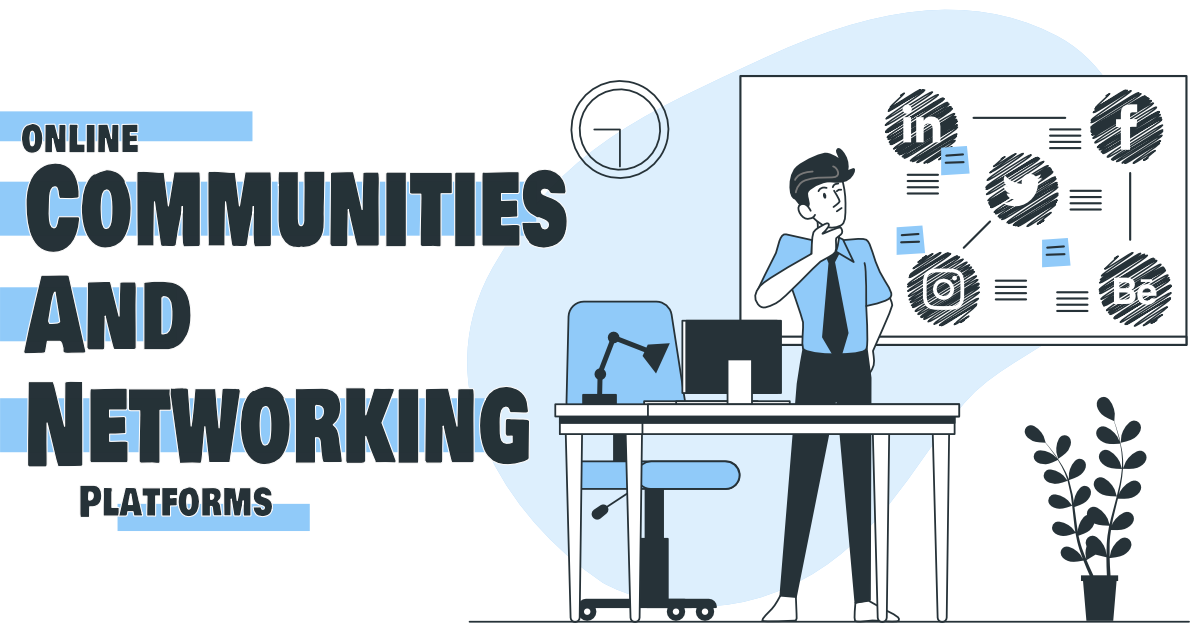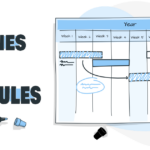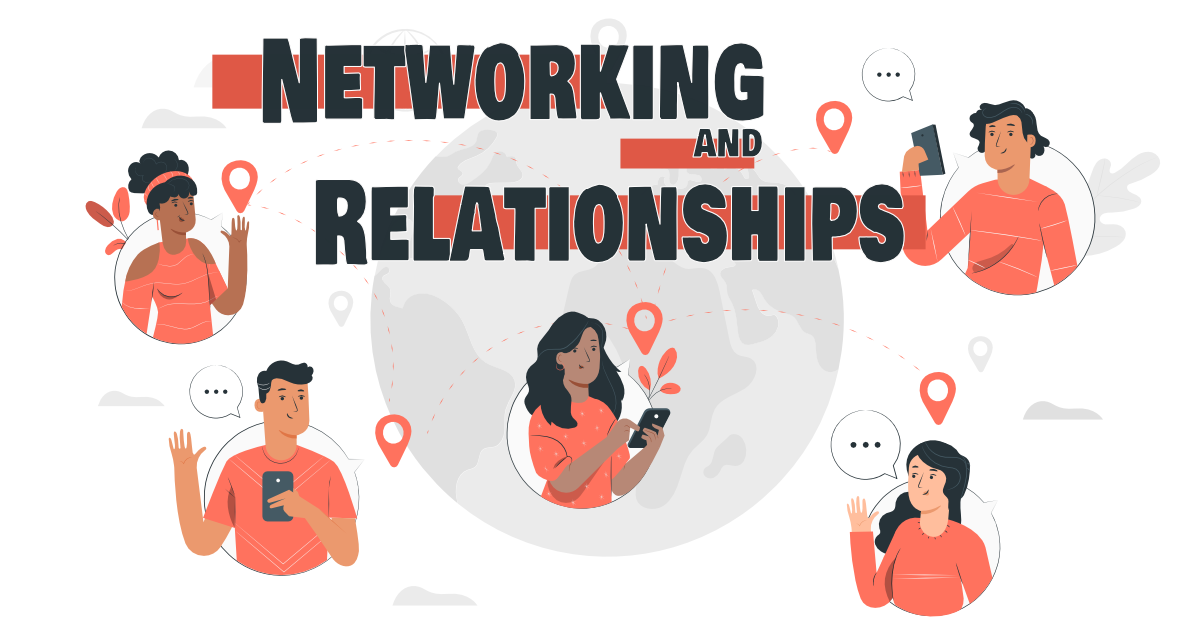In today’s digital age, the internet has made it easier than ever for entrepreneurs to connect with potential collaborators and build networks. Online communities and networking platforms provide a wealth of resources and opportunities for entrepreneurs to connect, share ideas, and collaborate with others. Whether you’re looking to find a business partner, mentor, or simply expand your network, there are many online resources available to help entrepreneurs succeed. In this article, we will explore the different types of online communities and networking platforms available and discuss how entrepreneurs can best leverage these resources to build successful collaborations.
Utilizing LinkedIn for professional networking
LinkedIn is one of the most popular online networking platforms for professionals. It’s an excellent tool for entrepreneurs to connect with potential collaborators, build their professional brand, and expand their network. In this article, we will explore how entrepreneurs can best utilize LinkedIn for professional networking.
Building a Strong Profile
The first step in utilizing LinkedIn for professional networking is to build a strong profile. This includes filling out your profile information, adding a professional headshot, and including a detailed description of your experience and expertise. A strong profile will make it more likely that others will find and connect with you.
Building a Network
Once you have a strong profile, the next step is to start building your network. This can be done by connecting with colleagues, industry experts, and other entrepreneurs. It’s also important to engage with others on the platform by commenting on and sharing relevant posts, as well as writing your own content.
Joining Groups and Communities
Another great way to connect with others on LinkedIn is by joining groups and communities related to your industry. These groups and communities provide an opportunity to connect with like-minded individuals, share ideas, and collaborate on projects.
Best Practices
One of the best practices in utilizing LinkedIn for professional networking is to be active and consistent on the platform. This means regularly updating your profile, engaging with others, and sharing relevant content. It’s also important to be authentic and professional in all interactions.
Resources and References
A good book reference on the topic is “The LinkedIn Playbook: For Business” by Wayne Breitbarth. It provides great insights on how to effectively use LinkedIn for professional networking and building collaborations.
In conclusion, LinkedIn is an excellent resource for entrepreneurs looking to connect with potential collaborators and build their professional network. By building a strong profile, building a network, joining groups and communities and following best practices, entrepreneurs can leverage the power of LinkedIn to find and connect with the right people to achieve their goals.
Joining online entrepreneur groups and forums
Online entrepreneur groups and forums are a great way for entrepreneurs to connect with like-minded individuals, share ideas, and collaborate on projects. These groups and forums provide a platform for entrepreneurs to ask for advice, share their experiences, and network with other entrepreneurs. In this article, we will explore how entrepreneurs can best utilize online entrepreneur groups and forums for networking and collaboration.
Finding the Right Groups and Forums
The first step in utilizing online entrepreneur groups and forums is to find the right ones for you. There are many groups and forums available online, so it’s essential to find ones that are relevant to your industry and interests. Some popular online entrepreneur groups and forums include Entrepreneur.com, Reddit’s Entrepreneur Subreddit, and the Small Business subreddit.
Engaging with the Community
Once you have found the right groups and forums, the next step is to engage with the community. This can be done by asking questions, sharing your own experiences, and providing helpful advice to others. It’s also important to be active and consistent in your participation.
Building Relationships
Another great way to utilize online entrepreneur groups and forums is to build relationships with other entrepreneurs. This can be done by connecting with other members outside of the group or forum, such as through social media or email. These relationships can lead to future collaborations and opportunities.
Best Practices
One of the best practices in utilizing online entrepreneur groups and forums is to be respectful and helpful in all interactions. This means avoiding spamming or promoting your own business, and instead focusing on providing value to the community.
Resources and References
Another good book reference on the topic is “The Power of Community: How Engagement Is Changing Business, Society, and Your Organization” by Robert C. Hone. It provides an in-depth look at how online communities are changing the way we do business and how entrepreneurs can leverage the power of online communities for networking and collaboration.
In conclusion, online entrepreneur groups and forums are a valuable resource for entrepreneurs looking to connect with like-minded individuals, share ideas, and collaborate on projects. By finding the right groups and forums, engaging with the community, building relationships, and following best practices, entrepreneurs can leverage the power of online communities to achieve their goals.
Building connections through social media platforms
Social media platforms have revolutionized the way we connect with others, and they can be a powerful tool for entrepreneurs looking to build their networks and collaborate with other business owners. Whether you’re a startup founder looking to connect with potential investors or a freelancer looking to expand your client base, social media can help you reach a wider audience and find the right people to help you achieve your goals.
Best Practices
- Define your target audience: Before you start building connections on social media, it’s important to have a clear idea of who you’re trying to reach. Identify the type of people you want to connect with, such as potential customers, partners, or collaborators.
- Optimize your profiles: Make sure your social media profiles accurately reflect your brand and provide information about what you do and what you’re looking for. Use keywords in your profile to make it easier for people to find you.
- Be consistent: Consistently posting relevant and engaging content on your social media accounts will help you establish yourself as a thought leader in your industry and attract the right people to your network.
- Engage with others: Social media is a two-way street, so it’s important to engage with others by responding to comments, messages, and direct messages. Building relationships takes time and effort, but it’s worth it.
- Join relevant groups: Joining groups and communities on social media platforms can help you connect with others who share your interests and goals. Look for groups related to your industry, niche, or location.
- Leverage LinkedIn: LinkedIn is a powerful tool for professional networking, and it’s especially useful for entrepreneurs looking to connect with other business owners and investors. Make sure your LinkedIn profile is complete, and use the platform to connect with potential partners and collaborators.
Examples
- A fashion designer who uses Instagram to connect with other designers, photographers, and models to collaborate on photoshoots and fashion shows.
- A startup founder who uses LinkedIn to connect with potential investors and advisors, and to find potential employees.
- A freelance graphic designer who uses Facebook to connect with potential clients and to join groups of other freelancers to collaborate on projects.
Resources and References
- “The Power of Social Selling: Leveraging LinkedIn to Drive Business Growth” by Jill Konrath
- “The Art of Social Media: Power Tips for Power Users” by Guy Kawasaki and Peg Fitzpatrick
- “Networking Like a Pro: Turning Contacts into Connections” by Ivan Misner and Harvey Mackay
In conclusion, social media platforms can be a powerful tool for entrepreneurs looking to build their networks and collaborate with other business owners. By following best practices such as defining your target audience, optimizing your profiles, being consistent, engaging with others, joining relevant groups and leveraging LinkedIn, you can increase your chances of finding the right people to help you achieve your goals. With so many options available, it’s worth taking the time to experiment with different platforms to see which one works best for you.
Utilizing online networking and collaboration tools
In today’s digital age, entrepreneurs and business owners have access to a variety of online networking and collaboration tools that can help them connect with potential collaborators, partners, and clients. These tools, such as Slack and Asana, allow users to communicate, share files, and collaborate on projects in real-time, making it easier than ever to build and maintain professional relationships. In this article, we’ll explore the benefits of using online networking and collaboration tools and provide some best practices for leveraging them to achieve your business goals.
The Benefits of Online Networking and Collaboration Tools
- Online networking and collaboration tools offer a convenient and efficient way for entrepreneurs and business owners to connect with potential collaborators, partners, and clients.
- These tools allow users to communicate, share files, and collaborate on projects in real-time, making it easy to stay on top of tasks and deadlines.
- Online networking and collaboration tools also allow entrepreneurs to connect with a global network of professionals, which can lead to new business opportunities and partnerships.
Best Practices for Utilizing Online Networking and Collaboration Tools
- Be selective about the groups and channels you join: It’s important to be strategic about the online communities and groups you join. Look for groups that align with your business goals and interests, and avoid joining groups that are not relevant to your business.
- Participate in online discussions and share valuable content: Once you’ve joined a group or channel, make sure to participate in online discussions and share valuable content that can help establish you as a thought leader in your industry.
- Keep your profile up-to-date: Your online profile is often the first impression that people have of you, so make sure it’s up-to-date and reflects your professional brand.
Examples of popular online networking and collaboration tools
- Slack: A messaging platform that allows users to communicate and collaborate in real-time. It can be used to share files, schedule meetings, and more.
- Asana: A project management tool that allows users to assign tasks, track progress, and collaborate with team members.
- Trello: A visual project management tool that allows users to organize tasks, track progress, and collaborate with team members.
Resources and References
- “Never Eat Alone: And Other Secrets to Success, One Relationship at a Time” by Keith Ferrazzi
- “The Art of Possibility: Transforming Professional and Personal Life” by Rosamund Stone Zander, Benjamin Zander
- “Power Networking: The 25 Relationships You Need to Succeed“ by Donna Fisher
In conclusion, networking and collaboration are essential for any entrepreneur or business owner, and online networking and collaboration tools can make it easier than ever to connect with potential collaborators, partners, and clients. By being selective about the groups and channels you join, participating in online discussions, and keeping your profile up-to-date, you can leverage these tools to achieve your business goals and build a strong professional network.
Leveraging online marketplaces and collaboration platforms
As an entrepreneur, it’s essential to have a strong network of professionals and collaborators to turn to when opportunities arise. And in today’s digital age, there are more opportunities than ever to connect and collaborate with other entrepreneurs and businesses online. One way to expand your network and find potential collaborators is by leveraging online marketplaces and collaboration platforms, such as Upwork or Freelancer.
Understanding the Benefits of Online Marketplaces and Collaboration Platforms
Online marketplaces and collaboration platforms offer a wealth of benefits for entrepreneurs looking to expand their networks and find new collaborators. These platforms connect professionals from all over the world, providing access to a diverse pool of talent and expertise. Additionally, these platforms often feature a wide range of project management and communication tools, making it easy to collaborate with others remotely.
Finding the Right Platform for Your Needs
When it comes to online marketplaces and collaboration platforms, there is no one-size-fits-all solution. Different platforms are geared towards different industries and skill sets. For example, Upwork is a popular platform for connecting with freelance professionals, while Freelancer is geared towards connecting businesses with remote teams. Before diving in, it’s important to do some research and find the platform that best meets your needs.
Building Connections and Collaborations on the Platform
Once you’ve found the right platform, it’s time to start building connections and collaborations. A good way to start is by creating a strong profile that showcases your skills and experience. This will help you stand out to potential collaborators and clients. Additionally, actively searching for and reaching out to potential collaborators can also be a great way to build connections.
Best Practices for Collaborating on the Platform
When collaborating with others on an online marketplace or collaboration platform, it’s important to have clear communication and expectations from the start. Setting up regular check-ins and using project management tools can help keep everyone on track and ensure that goals are being met. Additionally, it’s important to be open and honest with your collaborators, addressing any issues or concerns that may arise.
Resources and References
To help you further understand the benefits and best practices of leveraging online marketplaces and collaboration platforms, consider checking out the following resources:
- “The Gig Economy” by Diane Mulcahy
- “The Remote Revolution” by Tsedal Neeley
- “The Upstarts” by Brad Stone
By utilizing online marketplaces and collaboration platforms, entrepreneurs can expand their networks and find new collaborators to help take their businesses to the next level. With the right platform, a strong profile, and effective communication and collaboration practices, you’ll be well on your way to building a thriving network of professionals and collaborators. “













